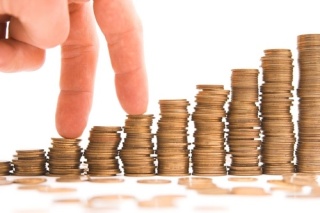
Sign up today...
for featured titles, special offers, bestsellers, and more, in your inbox!

I had a call the other day from David Streitfeld, who often covers the publishing business for the New York Times. He wanted to know if Amazon was discounting the books that IPG distributes at a lesser rate than they used to. There has been widespread concern in the publishing community that Amazons’ game plan is to steeply discount everything until the competition is wiped out, at which point they could put prices way up and start coining money.
It is true that Amazon has discounted very aggressively, and has been content to accept a very low profit margin if this would mean a rapid increase in market share—which it has. If titles are now being discounted less, this might signal that Amazon is turning to Part Two of its strategy, the part where the prices start to go up. In the article that Streitfeld published in the NYT on the 4th of July, one of his sources expressed the view that the discounts were in fact decreasing, especially on independent press and scholarly titles, which would be disastrous for sales.
My take on this issue is quite different. I have no inside information whatsoever about Amazon’s game plan, but I know what I would be doing if I were in their position: I would be experimenting with discounts and mining the sales data to see what effect different levels of discounting would have on the sales of various kinds of books at each stage in their life cycles. Streitfeld quotes me as saying:
“‘They [Amazon] are wondering, “If we knock off only 10 percent as opposed to 35 percent, where do we come out ahead?”‘ Mr. Matthews said. ‘They don’t care how many books they sell. They want to know how many dollars they get.’”
My grammar is regrettable, but the idea is from Business 101: Find the place where the price and volume lines cross on the graph, the balance that yields the most dollars.
Many people are offended by the very idea of discounting books. After all, books have a list price printed right on the jacket flap or back cover. Almost no other products have the price printed on them during manufacture. Doesn’t this mean that, for books, the list price is somehow the right price? And aren’t discounted products usually cheap knockoffs of better things? Perhaps Amazon has done a disservice to the special stature of the book as a cultural icon; perhaps all this discounting has convinced many consumers that paying list price for a book means you are a bit of a chump, like the little old lady who pays full sticker price for a new car. Or, it may be that the book is not quite the cultural icon it used to be—for reasons that have little to do with discounting.
I will confess that I was a happier book buyer in the days before they were routinely discounted. The printed list price assured me that the title I wanted would cost the same in any bookstore, and that no one would get a better deal than I did. But perhaps a lower price justifies putting up with a little low-level anxiety of that kind.
Leave a Reply